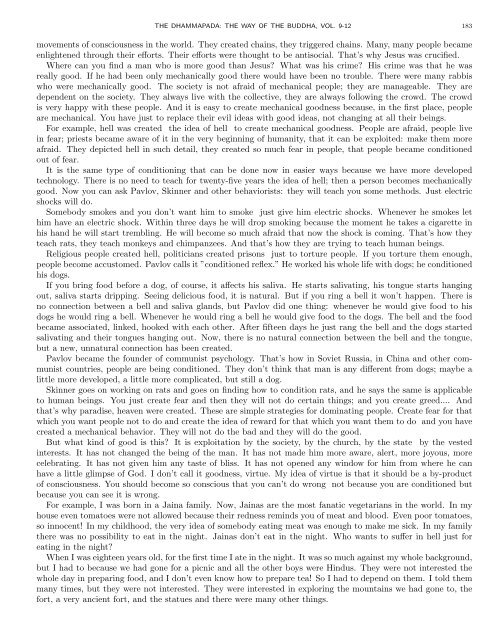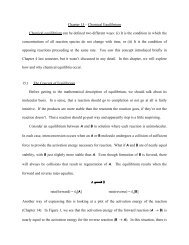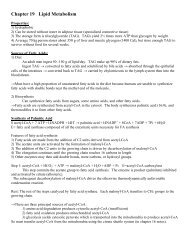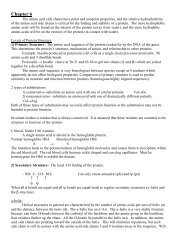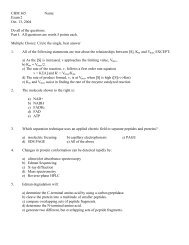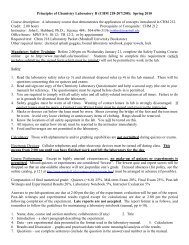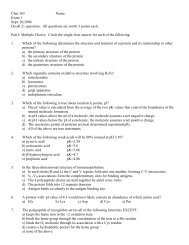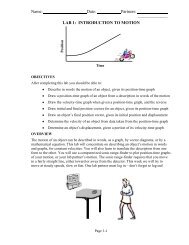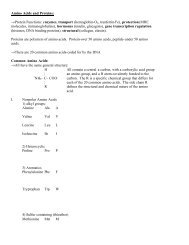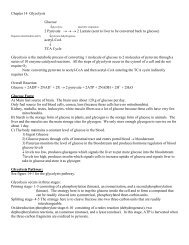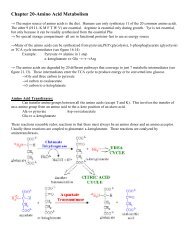THE DHAMMAPADA: THE WAY OF THE BUDDHA, VOL. 9-12 The ...
THE DHAMMAPADA: THE WAY OF THE BUDDHA, VOL. 9-12 The ...
THE DHAMMAPADA: THE WAY OF THE BUDDHA, VOL. 9-12 The ...
You also want an ePaper? Increase the reach of your titles
YUMPU automatically turns print PDFs into web optimized ePapers that Google loves.
<strong>THE</strong> <strong>DHAMMAPADA</strong>: <strong>THE</strong> <strong>WAY</strong> <strong>OF</strong> <strong>THE</strong> <strong>BUDDHA</strong>, <strong>VOL</strong>. 9-<strong>12</strong> 183<br />
movements of consciousness in the world. <strong>The</strong>y created chains, they triggered chains. Many, many people became<br />
enlightened through their efforts. <strong>The</strong>ir efforts were thought to be antisocial. That’s why Jesus was crucified.<br />
Where can you find a man who is more good than Jesus? What was his crime? His crime was that he was<br />
really good. If he had been only mechanically good there would have been no trouble. <strong>The</strong>re were many rabbis<br />
who were mechanically good. <strong>The</strong> society is not afraid of mechanical people; they are manageable. <strong>The</strong>y are<br />
dependent on the society. <strong>The</strong>y always live with the collective, they are always following the crowd. <strong>The</strong> crowd<br />
is very happy with these people. And it is easy to create mechanical goodness because, in the first place, people<br />
are mechanical. You have just to replace their evil ideas with good ideas, not changing at all their beings.<br />
For example, hell was created the idea of hell to create mechanical goodness. People are afraid, people live<br />
in fear; priests became aware of it in the very beginning of humanity, that it can be exploited: make them more<br />
afraid. <strong>The</strong>y depicted hell in such detail, they created so much fear in people, that people became conditioned<br />
out of fear.<br />
It is the same type of conditioning that can be done now in easier ways because we have more developed<br />
technology. <strong>The</strong>re is no need to teach for twenty-five years the idea of hell; then a person becomes mechanically<br />
good. Now you can ask Pavlov, Skinner and other behaviorists: they will teach you some methods. Just electric<br />
shocks will do.<br />
Somebody smokes and you don’t want him to smoke just give him electric shocks. Whenever he smokes let<br />
him have an electric shock. Within three days he will drop smoking because the moment he takes a cigarette in<br />
his hand he will start trembling. He will become so much afraid that now the shock is coming. That’s how they<br />
teach rats, they teach monkeys and chimpanzees. And that’s how they are trying to teach human beings.<br />
Religious people created hell, politicians created prisons just to torture people. If you torture them enough,<br />
people become accustomed. Pavlov calls it ”conditioned reflex.” He worked his whole life with dogs; he conditioned<br />
his dogs.<br />
If you bring food before a dog, of course, it affects his saliva. He starts salivating, his tongue starts hanging<br />
out, saliva starts dripping. Seeing delicious food, it is natural. But if you ring a bell it won’t happen. <strong>The</strong>re is<br />
no connection between a bell and saliva glands, but Pavlov did one thing: whenever he would give food to his<br />
dogs he would ring a bell. Whenever he would ring a bell he would give food to the dogs. <strong>The</strong> bell and the food<br />
became associated, linked, hooked with each other. After fifteen days he just rang the bell and the dogs started<br />
salivating and their tongues hanging out. Now, there is no natural connection between the bell and the tongue,<br />
but a new, unnatural connection has been created.<br />
Pavlov became the founder of communist psychology. That’s how in Soviet Russia, in China and other communist<br />
countries, people are being conditioned. <strong>The</strong>y don’t think that man is any different from dogs; maybe a<br />
little more developed, a little more complicated, but still a dog.<br />
Skinner goes on working on rats and goes on finding how to condition rats, and he says the same is applicable<br />
to human beings. You just create fear and then they will not do certain things; and you create greed.... And<br />
that’s why paradise, heaven were created. <strong>The</strong>se are simple strategies for dominating people. Create fear for that<br />
which you want people not to do and create the idea of reward for that which you want them to do and you have<br />
created a mechanical behavior. <strong>The</strong>y will not do the bad and they will do the good.<br />
But what kind of good is this? It is exploitation by the society, by the church, by the state by the vested<br />
interests. It has not changed the being of the man. It has not made him more aware, alert, more joyous, more<br />
celebrating. It has not given him any taste of bliss. It has not opened any window for him from where he can<br />
have a little glimpse of God. I don’t call it goodness, virtue. My idea of virtue is that it should be a by-product<br />
of consciousness. You should become so conscious that you can’t do wrong not because you are conditioned but<br />
because you can see it is wrong.<br />
For example, I was born in a Jaina family. Now, Jainas are the most fanatic vegetarians in the world. In my<br />
house even tomatoes were not allowed because their redness reminds you of meat and blood. Even poor tomatoes,<br />
so innocent! In my childhood, the very idea of somebody eating meat was enough to make me sick. In my family<br />
there was no possibility to eat in the night. Jainas don’t eat in the night. Who wants to suffer in hell just for<br />
eating in the night?<br />
When I was eighteen years old, for the first time I ate in the night. It was so much against my whole background,<br />
but I had to because we had gone for a picnic and all the other boys were Hindus. <strong>The</strong>y were not interested the<br />
whole day in preparing food, and I don’t even know how to prepare tea! So I had to depend on them. I told them<br />
many times, but they were not interested. <strong>The</strong>y were interested in exploring the mountains we had gone to, the<br />
fort, a very ancient fort, and the statues and there were many other things.


